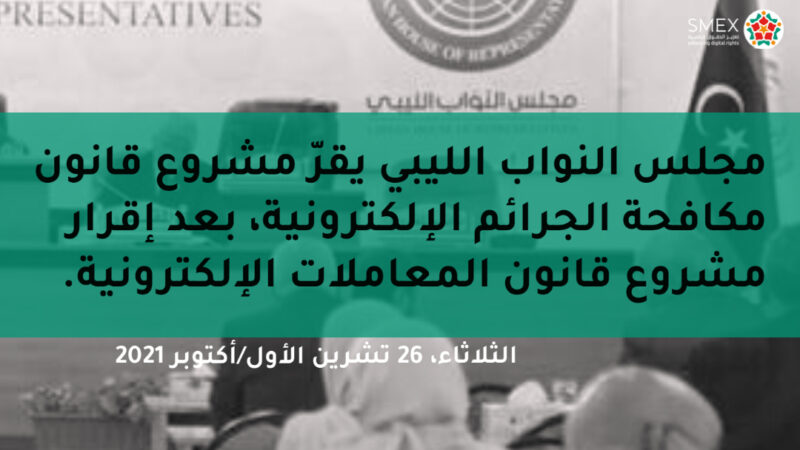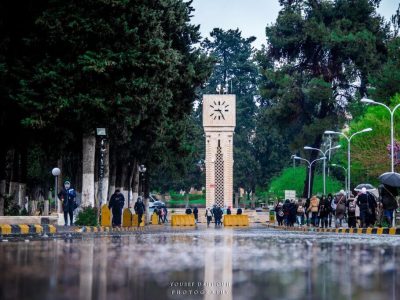
يعتبر الليبيون القوانين الجديدة التي أقرت في 26 أكتوبر / تشرين الأول قمعية لحقوق الإنسان – مصدر سمكس
نشر المقال أولًا على موقع سمكس تحت شراكة مع جلوبال فويسز.
أقرّ مجلس النواب الليبي في جلسته المنعقدة بتاريخ 26 أكتوبر /تشرين الأول 2021 “قانون مكافحة الجرائم الإلكترونية”، وذلك بعد يومٍ واحد على إقرار “قانون المعاملات الإلكترونية”.
تفيد الوقائع في المنطقة بأنّ قوانين مكافحة الجرائم الإلكترونية غالباً ما تُستخدَم لتكميم الأفواه وتقييد حرية التعبير، كما وإضفاء شرعية على عمليات الحجب والرقابة الحكومية.
لم يكن “قانون مكافحة الجرائم الإلكترونية” الليبي الجديد استثناءً، فهو يحدّ بصورةٍ كبيرة من حرية التعبير في الفضاء الإلكتروني، لما فيه من أحكام فضفاضة تسمح بممارسة الرقابة الشاملة على الجمهور والصحافة من دون الاستحصال على إذن قضائي. كما اعتبره بعض الليبيين خطوة قمعية إضافية، خصوصاً وأنّه يركّز على معاقبة ناشري المحتوى على الويب.
Under the new Libyan Cybercrime Law, the National Information Security and Safety Authority is granted the freedom to block websites and “unwanted” content in the absence of any judicial authorization.
In several articles, the Law mentions general expressions that leave judges with a lot of room for interpretation and a broad discretionary power in relation to evidence and criminalization.
Libyan legislators have also expanded the law’s scope of enforcement to include crimes committed outside the country “if their impact and consequences extend to Libya.” This forces a form of self-censorship on citizens outside Libya, especially if they are considering returning to their homeland.
The timing of promulgation, with the presidential elections just around the corner, has left many people wondering about the purpose behind such a move. After the law was passed, the media advisor of the House Speaker announced that “the Cybercrime Law is concerned with cybercrimes that affect the State, among other aspects, but it does not contradict freedom of expression. The Law tackles crimes or the wrongful use of electronic technology in relation to the State, the person, or any other entity, including counterfeiting and spreading rumors.”
Libyans fear that with the approach of the elections, this Law will be used to restrict freedom of expression and stifle new political voices, especially amidst the many doubts around its promulgation and adoption. It is important to note that in the past two years, the Libyan House of Representatives has only passed what it deemed as highly necessary legislation, which makes their current efforts to impose this law even more suspicious. In a blog post, Libyan digital tights activist Amjad Badr raised the the concerns of Libyans regarding this Law and their weariness about its timing, stating that the Law is being weaponized to criminalize rights, such as the encryption of conversations, and to repress free speech under the pretext of protecting intellectual property and combating terrorism.
We call on countries and governments in the region to work towards protecting the privacy of citizens and their data, rather than criminalizing online speech and legislating repressive censorship.







